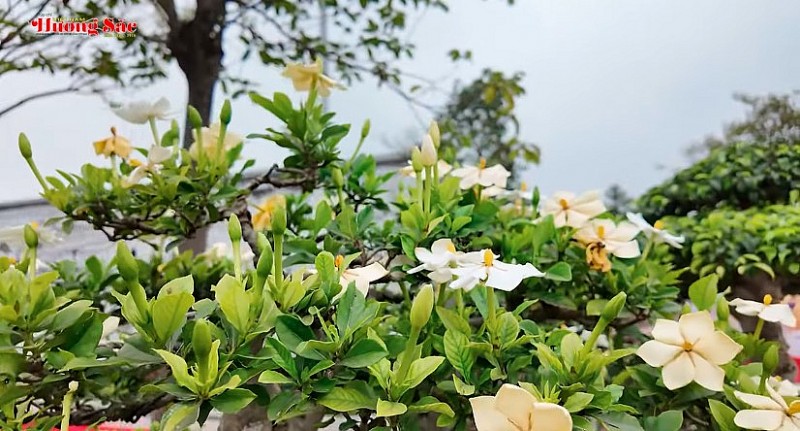National Cooperative Forum 2025: Breakthrough Thinking and Practical Action for a Green and Sustainable Vietnam
On the morning of April 11 in Hanoi, Deputy Prime Minister Nguyen Chi Dzung - Head of the National Steering Committee on Collective Economy—attended and delivered a speech at the 2025 National Cooperative Forum. He emphasized the need to swiftly shift from an agricultural production mindset to an agricultural economic mindset, aiming to maximize value per unit of land rather than just increasing output.
On behalf of the Party and State leaders, the Deputy Prime Minister extended best wishes on the 79th anniversary of Vietnam’s Cooperative Day (April 11, 1946 – April 11, 2025) and commended the Vietnam Cooperative Alliance, ministries, sectors, and localities for their initiative and successful organization of the Forum.
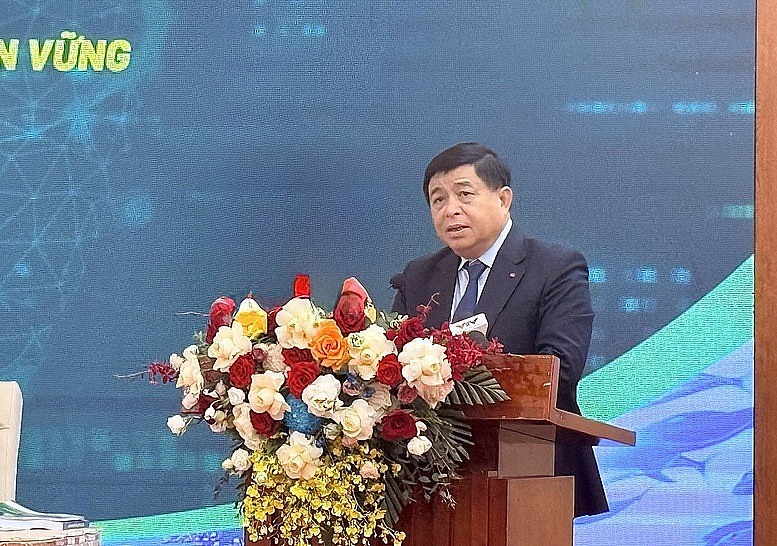 |
| Deputy Prime Minister Nguyen Chi Dzung delivers a speech at the 2025 National Cooperative Forum – Photo: VGP. |
Green and circular economies are becoming a global trend and an inevitable path for many countries. The Vietnamese Government has also been proactive, committed, and resolute in the green transition process by issuing resolutions, strategies, action plans, and international commitments toward the national goal of sustainable development.
Through this, cooperatives, cooperative unions, collaborative groups, their members, and households are actively contributing to the achievement of goals and tasks such as reducing greenhouse gas emissions, greening economic sectors and lifestyles, and promoting sustainable consumption.
Deputy Prime Minister Nguyen Chi Dzung reiterated several key perspectives and solutions that received broad consensus during the Forum’s discussions.
The 2025 Forum takes place at a time when the world is undergoing a profound transformation in development models, with green, circular, and digital economies emerging as the pillars of the future.
As part of the 2025 Month of Cooperative Action, this event not only serves as a meeting ground for policymakers, representatives of the Vietnam Cooperative Alliance, ministries, and local governments but also as a strategic dialogue space among cooperatives, businesses, research institutes, and international organizations. With the theme “Green Production Transformation for Sustainable Development,” the Forum reflects the national stature in shaping policy directions, building institutional foundations, and promoting practical actions to position cooperatives as pioneers in greening the economy.
The keynote speeches by Deputy Prime Minister Nguyen Chi Dzung and other senior leaders affirmed the Government’s strong commitment to promoting the collective economic sector as a vital pillar in the country’s development strategy. As the world embraces the green integration era, the 2025 National Cooperative Forum marks a clear commitment to mindset transformation, aiming to realize sustainable development goals and enhance Vietnam’s economic resilience and competitiveness.
The collective economy and cooperatives are undergoing significant transformation in the new era, where green and sustainable development is an essential requirement. No longer merely a traditional agricultural model, cooperatives are now recognized by the Party and State as strategic tools to promote cultural and social values, protect the environment, and foster lifestyles in harmony with nature.
General Secretary To Lam’s article on the development orientation of the collective economy emphasized the role of cooperatives in building an independent, self-reliant economy capable of withstanding global shocks. At the Forum, Deputy Prime Minister Nguyen Chi Dzung also stressed that developing cooperatives is no longer optional but essential to achieve the dual goals of economic growth and environmental protection. In the context of deep international integration, the need to innovate leadership thinking and cooperative governance has never been more urgent. From once being “spontaneous” or “supplementary,” cooperatives are now being developed into core production forces in many localities thanks to the application of science and technology, improved organizational capacity, and updated operational models. Several provinces already have clear strategies for developing modern, green, and digital cooperatives.
The legal system is also being refined, with strategic documents such as Resolution 20-NQ/TW, the amended Cooperative Law, and guiding decrees reflecting high political determination to position the collective economy as a central force in national development.
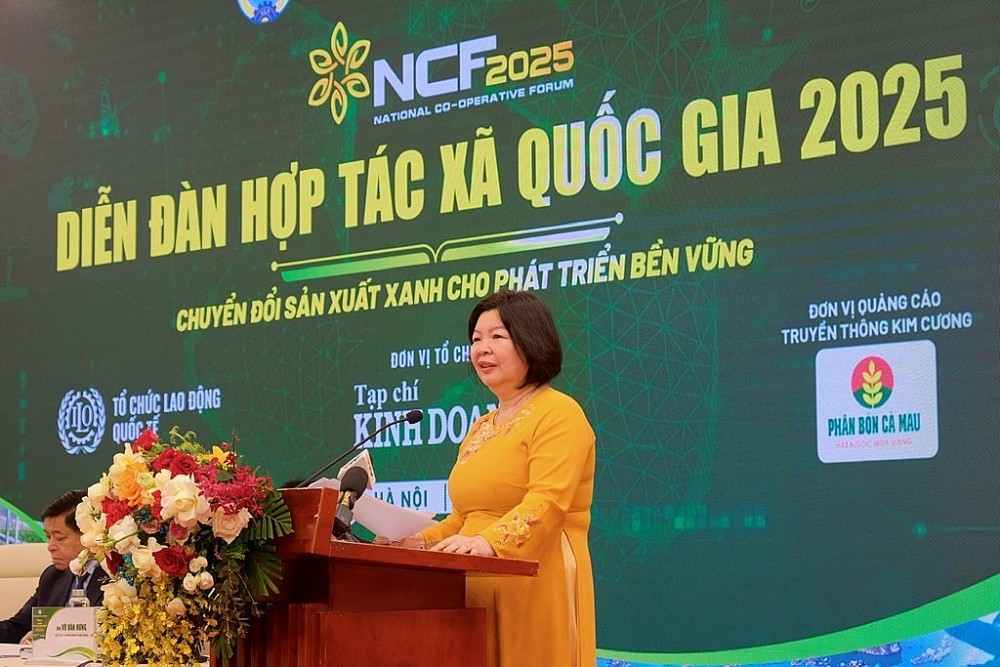 |
| Cao Xuan Thu Van, President of the Vietnam Cooperative Alliance, delivered the opening remarks at the Forum. |
A major highlight of the 2025 Forum is the identification of three strategic pillars for building a modern cooperative ecosystem: green production, digital transformation, and green finance. Green production is not just a global trend but a vital requirement for Vietnamese cooperatives amid climate crises and stringent international market standards.
Efforts to reduce emissions, reuse resources, save energy, and adopt circular economy models help cooperatives enhance product value, assert social responsibility, and build consumer trust. At the same time, digital transformation is unlocking new opportunities for modern management. Technologies such as artificial intelligence (AI), blockchain, smart sensors, and renewable energy not only boost productivity and cut costs but also improve transparency, traceability, and international standard compliance. Many cooperatives are leading the way in using these technologies for quality control, market forecasting, and digital branding.
On green finance, Deputy Prime Minister Nguyen Chi Dzung proposed establishing a dedicated green credit framework for cooperatives. He also directed the State Bank of Vietnam, Ministry of Finance, and financial institutions to develop suitable financial products to support cooperatives in accessing preferential capital for green technologies and circular economic models. The Forum also emphasized the importance of policy systems - especially Resolution 106/NQ-CP and Decree 113/2024/NĐ-CP—as legal foundations for supporting cooperatives’ sustainable and substantial development.
The combination of these three pillars will determine the adaptability and global integration capacity of Vietnamese cooperatives in the near future, marking a major turning point in building a national green economy.
Pioneering cooperative models have proven that with the right support, the collective economy can lead the green transition and global integration. For example, the Hậu Giang Pangasius Cooperative successfully exported to the U.S. market with high-quality standards, while the organic medicinal herb planting model in Lao Cai has created sustainable livelihoods for thousands of ethnic minority people.
The “Cooperative Star 2025” Award presented at the Forum honored such pioneering models, showcasing the collective economy's innovative spirit and vitality. Deputy Prime Minister Nguyen Chi Dzung emphasized a new mindset in agricultural economics - focusing on optimizing value per unit of land rather than just increasing yield—as a sustainable development philosophy. Cooperatives are no longer just production units but new-style “social enterprises” that help reduce resource exploitation, increase labor productivity, and improve people’s quality of life.
Another key highlight of the Forum was the push for stronger linkages among cooperatives, businesses, research institutes, and international organizations. These linkages are growing stronger, with the Vietnam Cooperative Alliance playing a central role in training, technology transfer, and market access support.
 |
| Mr. Bui Anh Tuan, Director General of the Agency for Enterprise Development and Collective Economy – Ministry of Finance. |
The Ministry of Foreign Affairs and the Ministry of Industry and Trade are also expected to act as bridges to help Vietnamese cooperatives reach global markets and take advantage of Free Trade Agreements (FTAs) and international partnerships. With a clear orientation and synchronized policies, Vietnam aims to have at least three cooperatives ranked among the top 300 global cooperatives by 2045, becoming core players in a green-digital economic ecosystem and enhancing Vietnam’s position in the global economic landscape.
The strategic vision of the Government and the Vietnam Cooperative Alliance to 2045 is to build a modern cooperative system in terms of organization, technology, market, and human resources. The adoption of the Cooperative 4.0 model will become a natural trend, with full digitalization of value chains and real-time connections with consumers and global markets as concrete goals.
Additionally, cooperatives will increasingly participate in non-agricultural sectors such as renewable energy, environmental treatment, eco-tourism services, and green urban development. The Government recognizes that achieving this vision requires comprehensive engagement from the entire political system, from central to local levels. Enterprises, financial institutions, research institutes, and the people themselves must become part of the innovation ecosystem for modern cooperatives. Fiscal, credit, workforce training, and social entrepreneurship incentive policies must be specifically designed for the cooperative sector. Cooperative development is not only an economic task but also a national strategy for building a green, equitable, and self-reliant economy in the integration era.
The National Cooperative Forum 2025 is not just a major political and economic event but also a turning point in public awareness and action on the strategic role of cooperatives. With the message “Green Production Transformation for Sustainable Development,” the Forum opens a new chapter for the collective economy—where innovative thinking is tied to practical action. It is a strong call for all stakeholders to join hands in building a new generation of cooperatives—united, innovative, flexible, and harmoniously integrated with both nature and society.
News


The 9X artist turns water hyacinth into living art

Over 1,000 artworks featured in the 2025 Expanded Ornamental Creatures Exhibition of Van Giang District
Other News
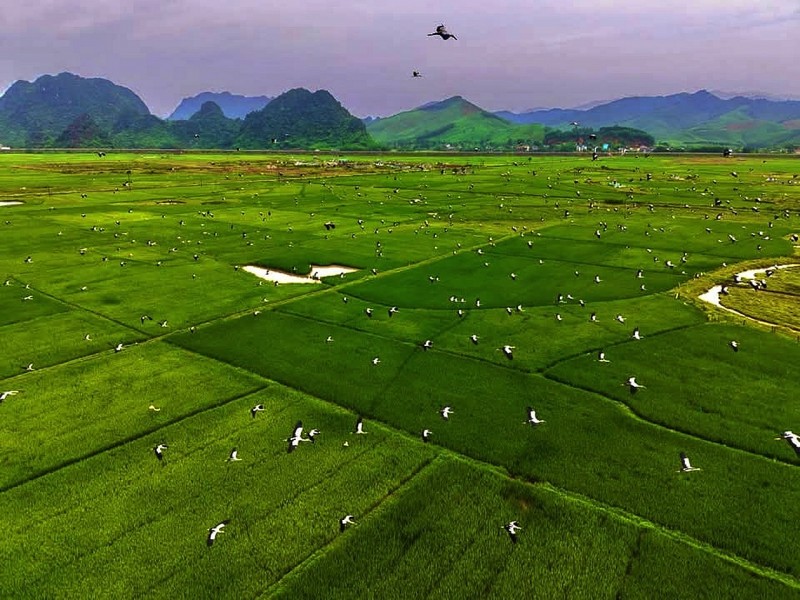
Endangered stork species making surprise appearance in Phong Nha - Ke Bang
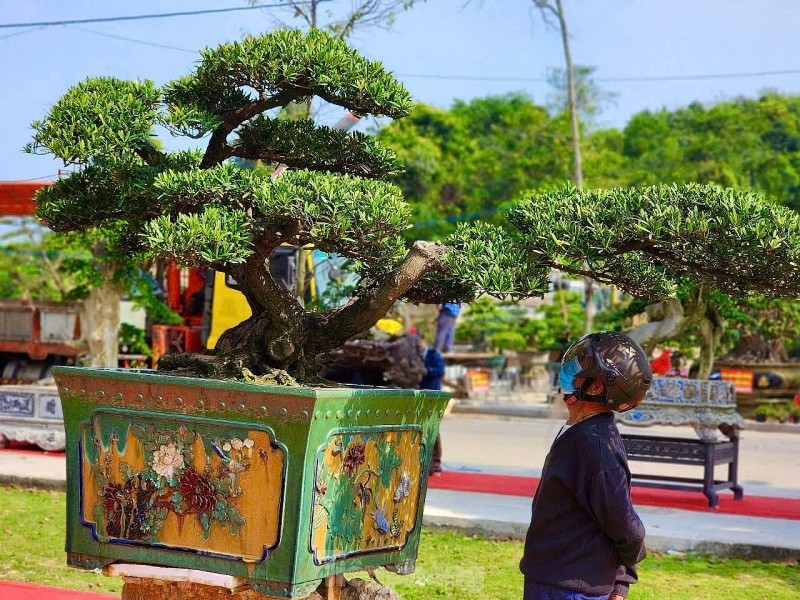
Over 1,000 master bonsai trees gather in Quang Ngai, dazzling plant enthusiasts

Opening Ceremony of 'Footsteps in the Clouds' 2025: A journey over mountains, touching the sky, and connecting journalists
Read more
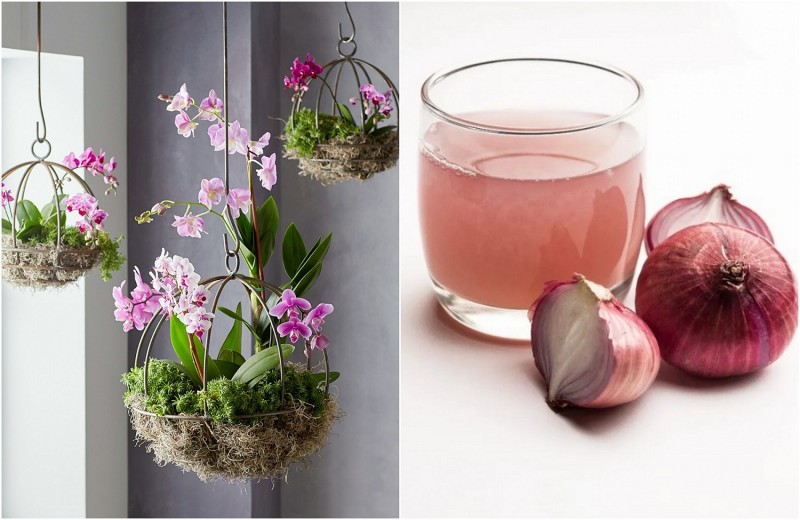
Not water, but understanding makes ornamental plants flourish
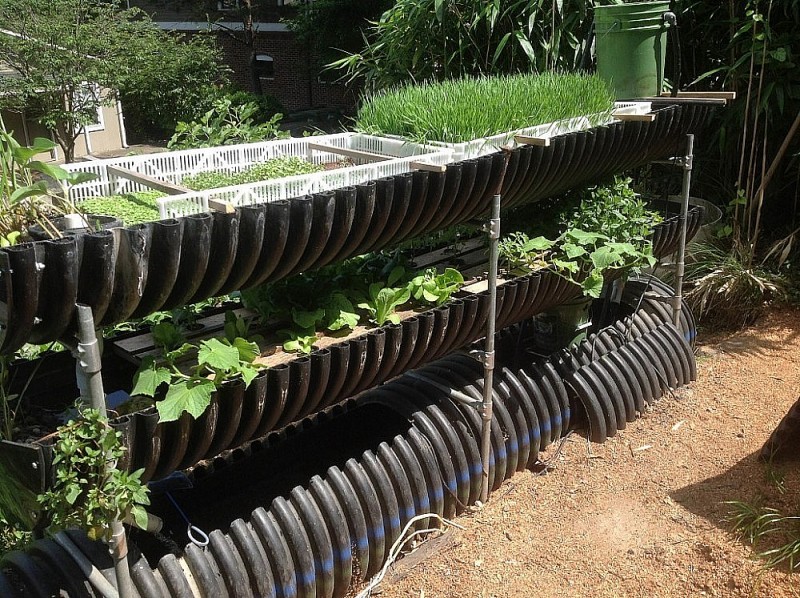
Bioponic vertical garden: When green sprouts in the heart of the city
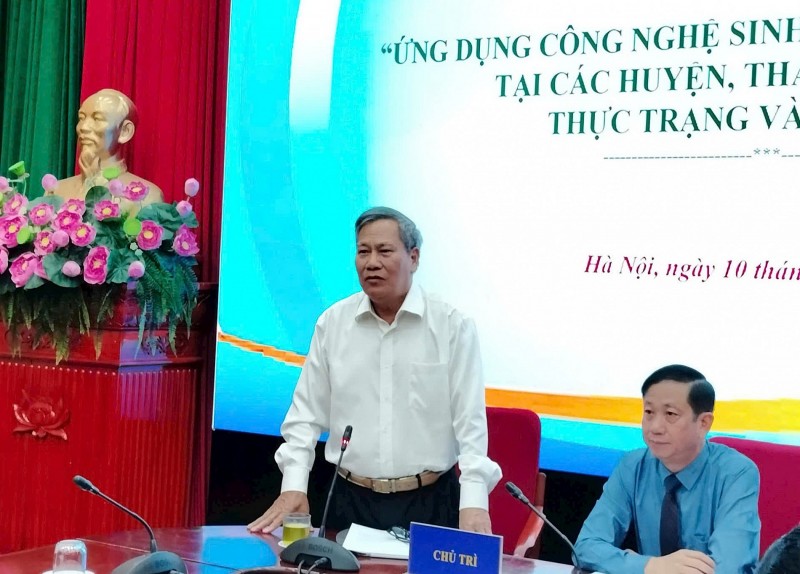
Breakthrough mechanisms needed to promote biotechnology application in Hanoi’s agriculture

Fish robots: Technological solutions open the era of smart aquaculture
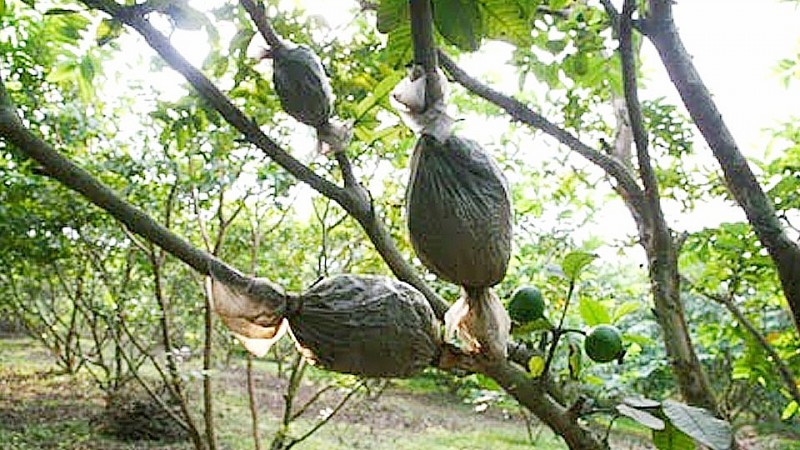
Air layering plants: An effective propagation method with great economic potential

Deteriorating air quality: Time for Hanoi to make bold investments in green spaces
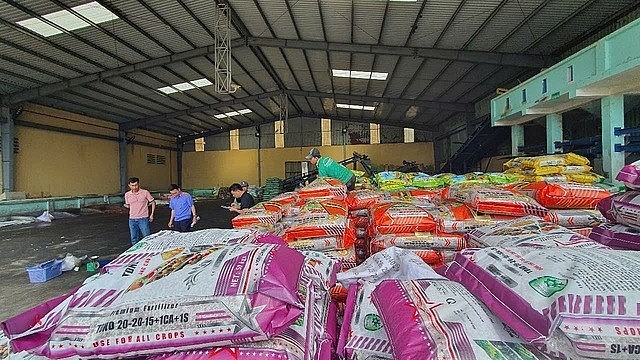
From fake fertilizers to green transformation: Opportunities in challenges

White Camellia: Nature-Healing Ornamental Treasure
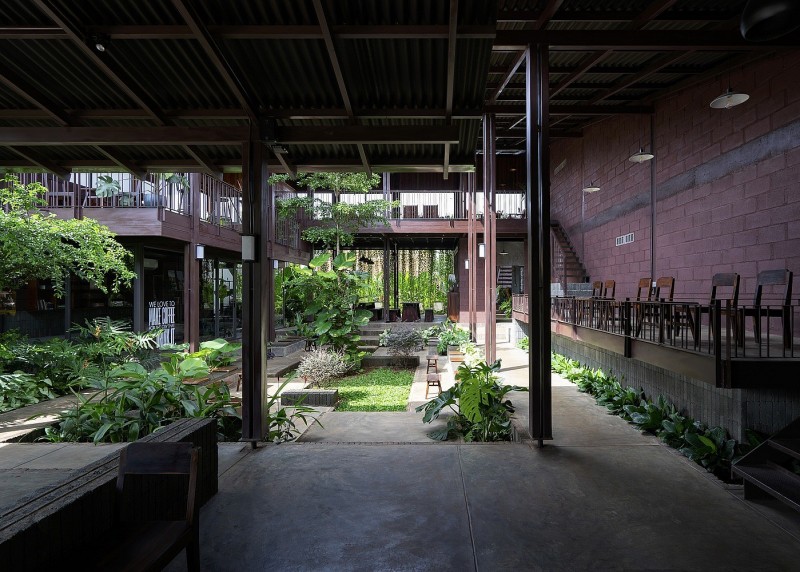
Coffee commune: A Green architectural space for community memory
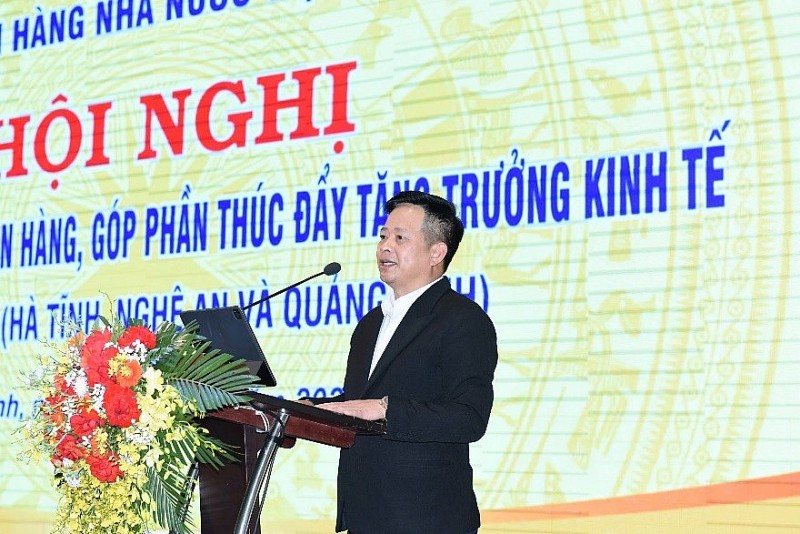
Accompanying sustainable agriculture: Perspective from Agribank and opportunities for developing Vietnam's Ornamental Plants industry
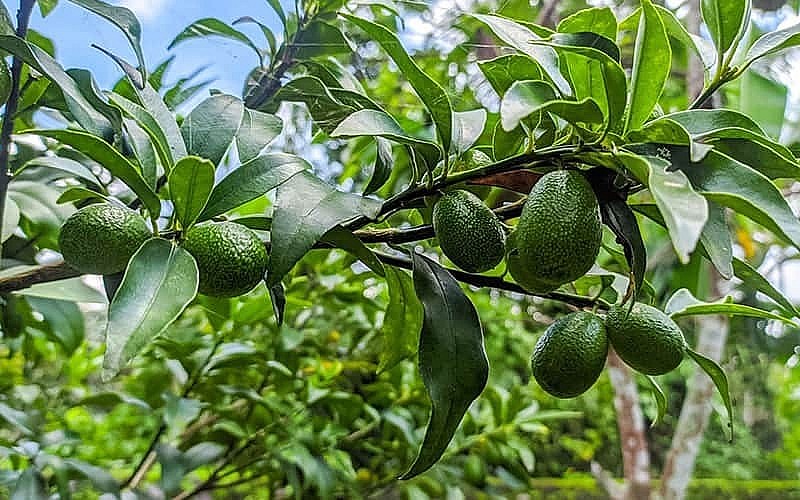
A superfruit widely grown in Vietnam, securing farmers stable income

STP Group: Nguyen Thi Hai Binh - The pioneer woman bringing the ocean into the circular economy and the journey of "connecting values - connecting the community"
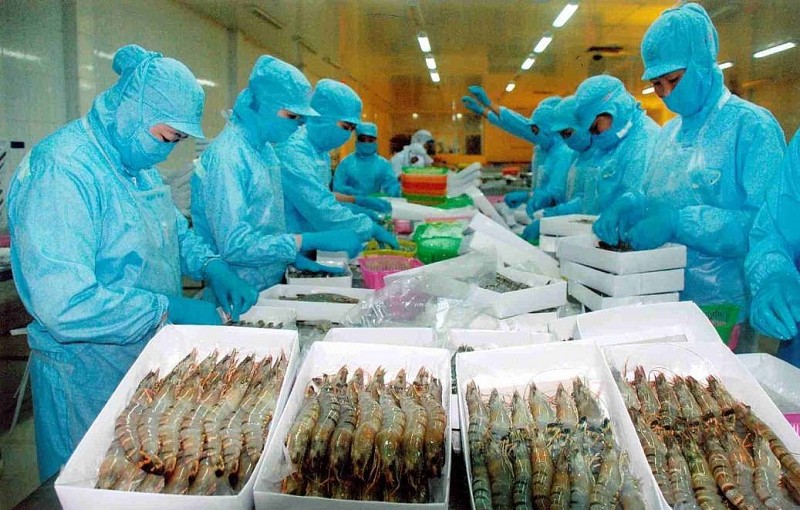
US imposes 46% reciprocal tax on Vietnamese goods: Risks and solutions for agricultural exports
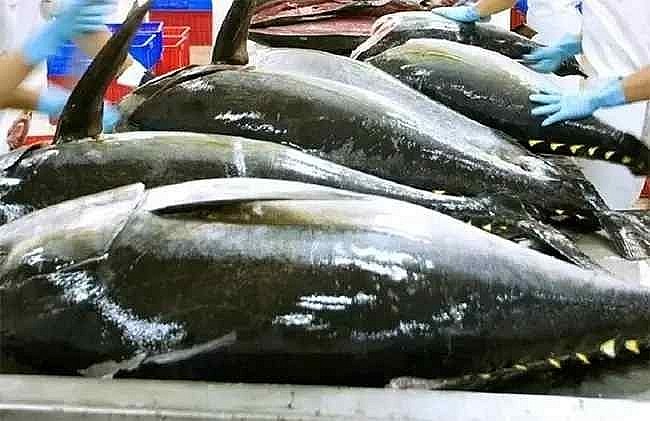
After durian, Vietnamese tuna emerges as a strong competitor to Thailand in global market

Vietnam named one of Asia’s top wildlife watching destinations
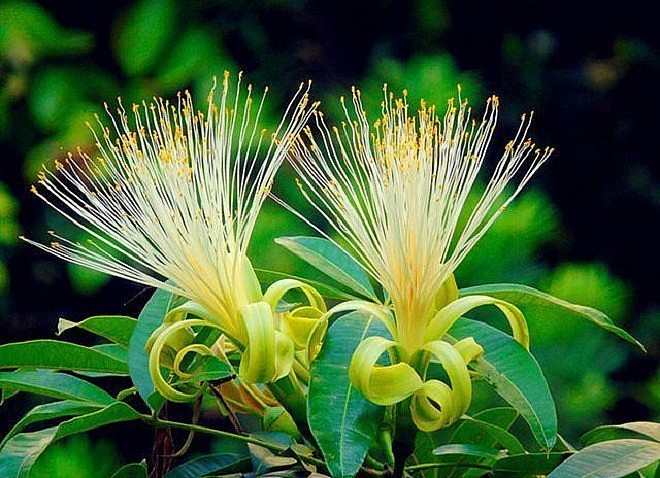
Blooming money tree - A rare omen of wealth and prosperity

Bún Flowers: Hanoi’s hidden floral delight
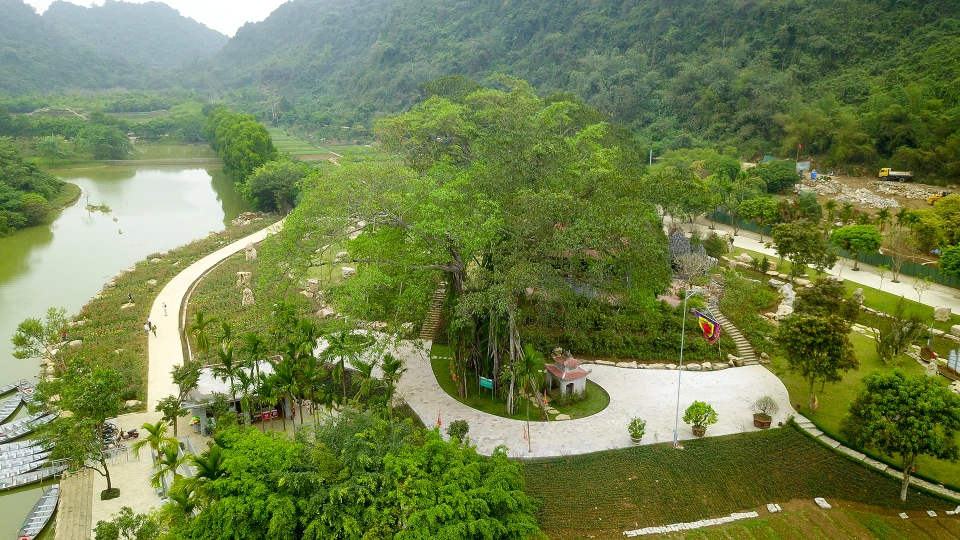
The thousand-year-old "moving" banyan tree in Ninh Binh, each step takes a century
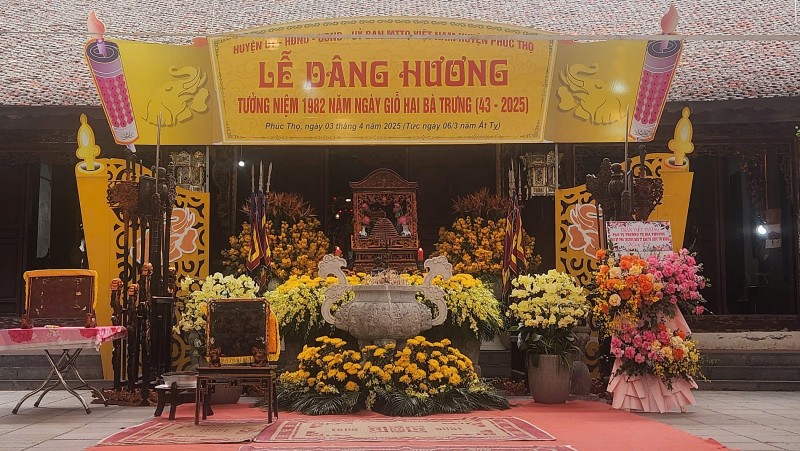
Hat Mon Temple – Historical Mark of Hai Ba Trung
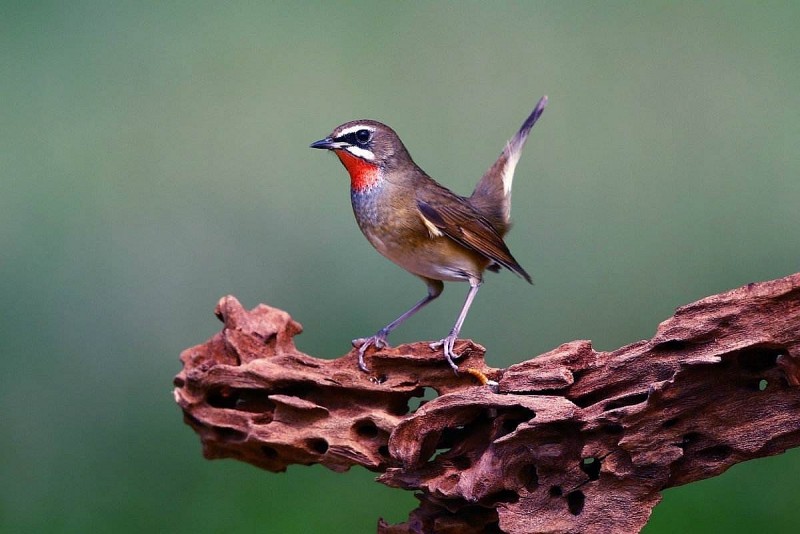
Discovering 4 bird species that have captivated the Chinese for centuries
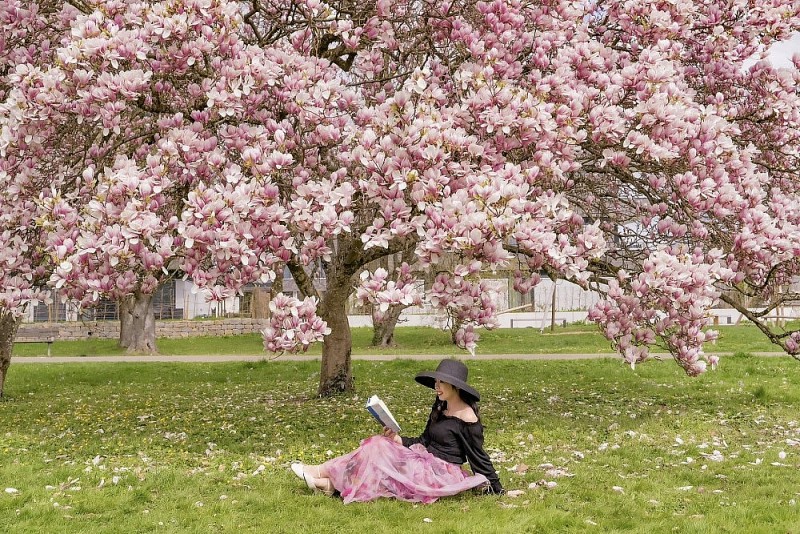
Vietnamese women and magnolia blooming seasons in Europe

Planting native species: A global trend for greener homes and bird-friendly spaces

56-year-old man living alone in the forest for 27 years with birds
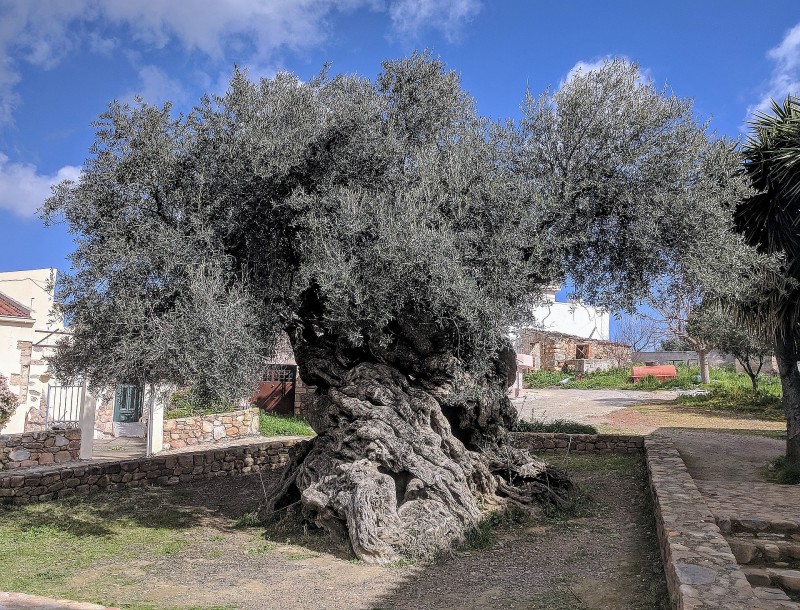
Gazing at a 5,000-year-old olive tree in Greece

Phong Nha - Ke Bang National Park: Revival of 7 rare Indochinese tigers

The 9X artist turns water hyacinth into living art
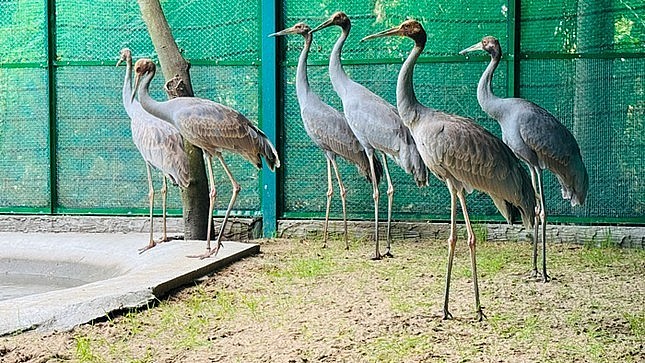
6 Sarus Cranes complete quarantine, set to return to Tram Chim National Park

Hong Loan Mai – The graceful charm of a bonsai beauty

Endangered stork species making surprise appearance in Phong Nha - Ke Bang
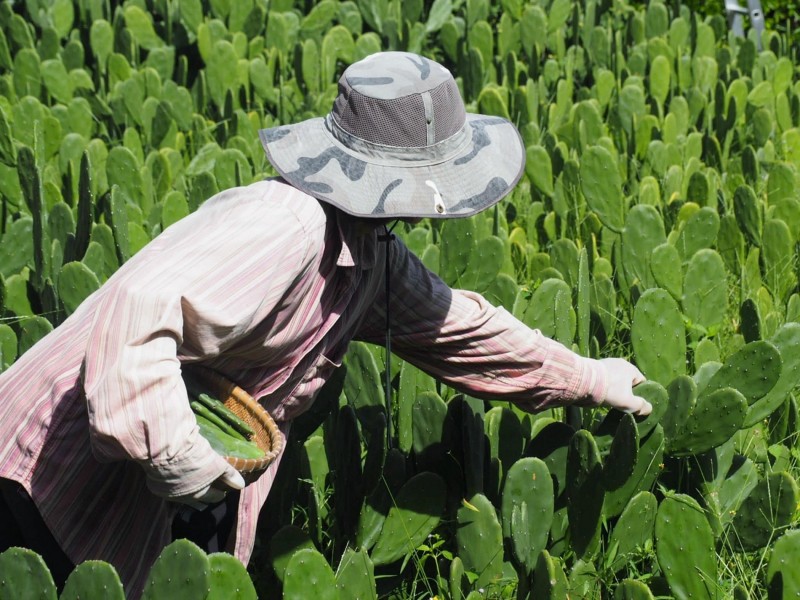
Leaving a $1,000 office job, engineer turns cactus into food and drink
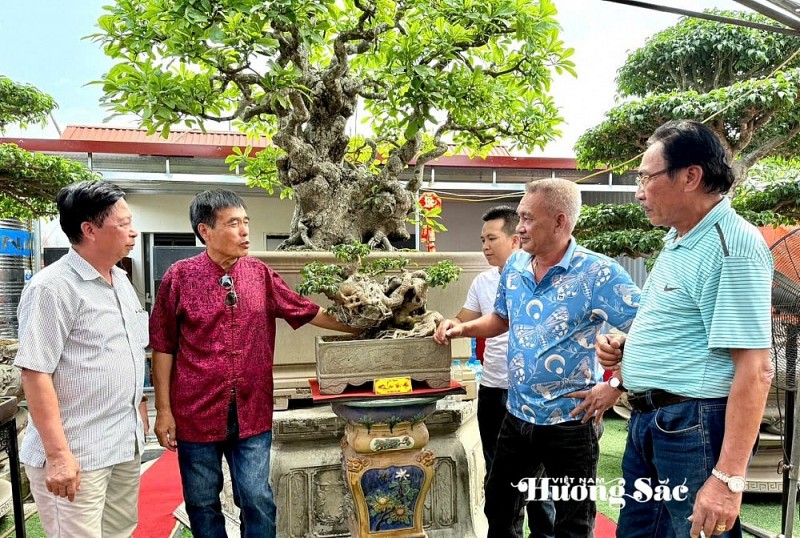
Hoa "Taxi" - A typical bonsai artist in Van Giang District, Hung Yen Province
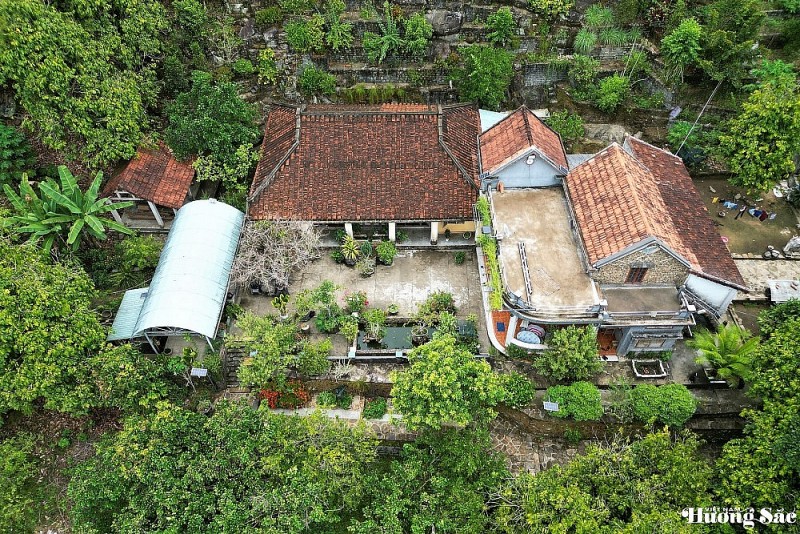
Look inside the million-dollar jackfruit wood ancient house in Quang Nam Province

Van Phuc Silk Village: Weaving tranquility through memories and colors
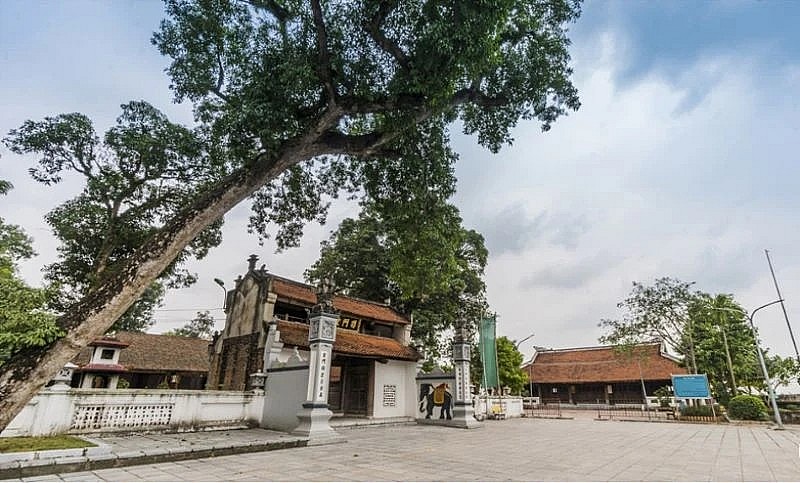
Exploring Hat Mon Temple in Hanoi
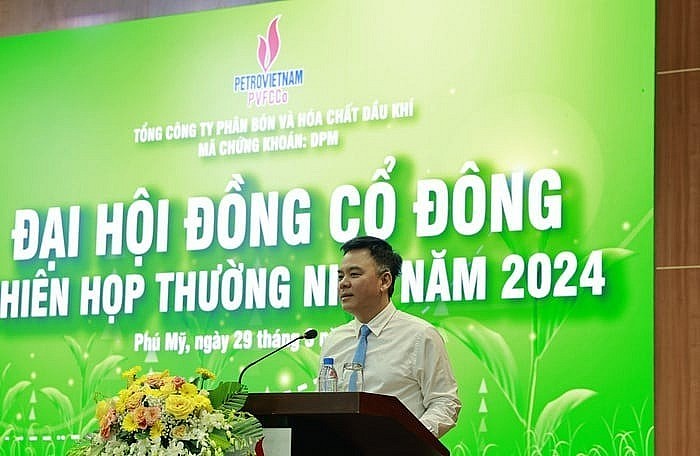
From the first granule of urea to a national brand: PVFCCo and its mission beyond the continent

STP Group: Nguyen Thi Hai Binh - The pioneer woman bringing the ocean into the circular economy and the journey of "connecting values - connecting the community"
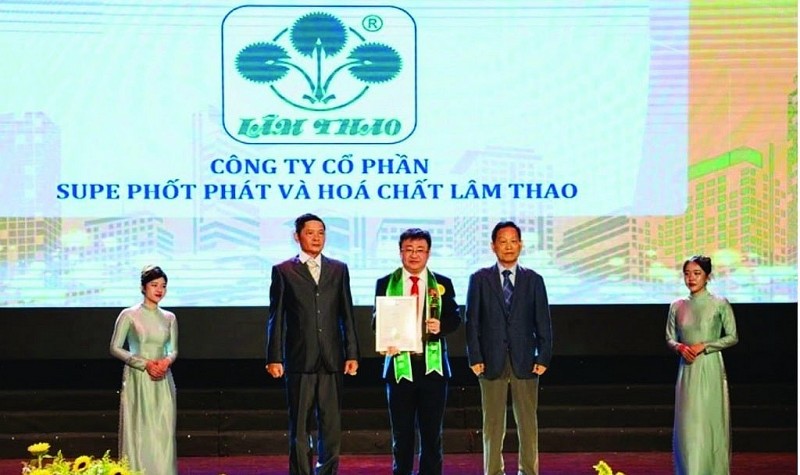
Toward the Celebration of the 63rd Anniversary of Lam Thao Superphosphate Company: From following President Ho Chi Minh’s wish to a national brand

Trailer introducing the special issue of Vietnam huong sac Magazine, published on May 19
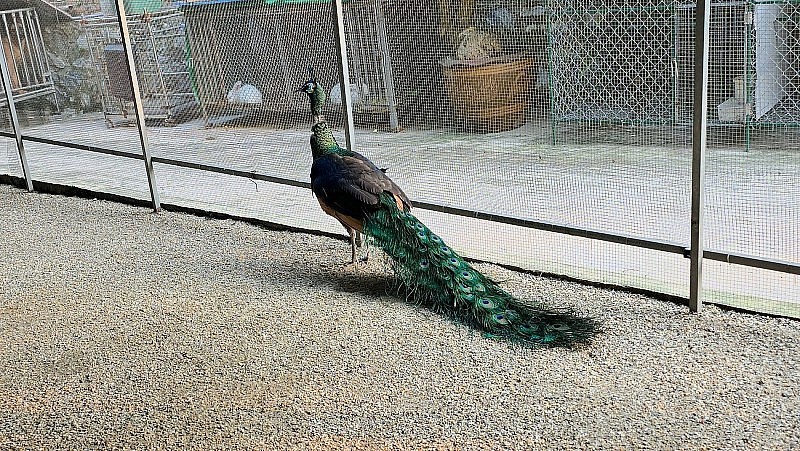
Surprised by rare songbirds at Dung Tan Center in Thai Nguyen Province
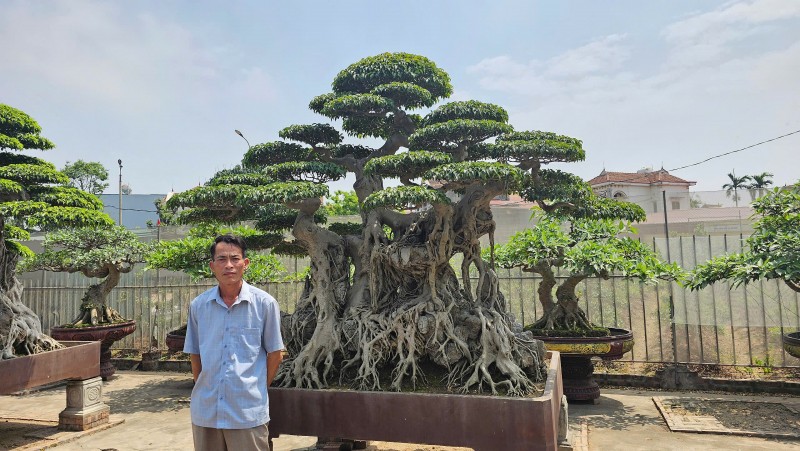
A passionate horticulturist committed to preserving the Sanh Da bonsai lineage in Hưng Yên

Look inside the million-dollar jackfruit wood ancient house in Quang Nam Province
